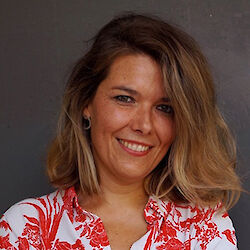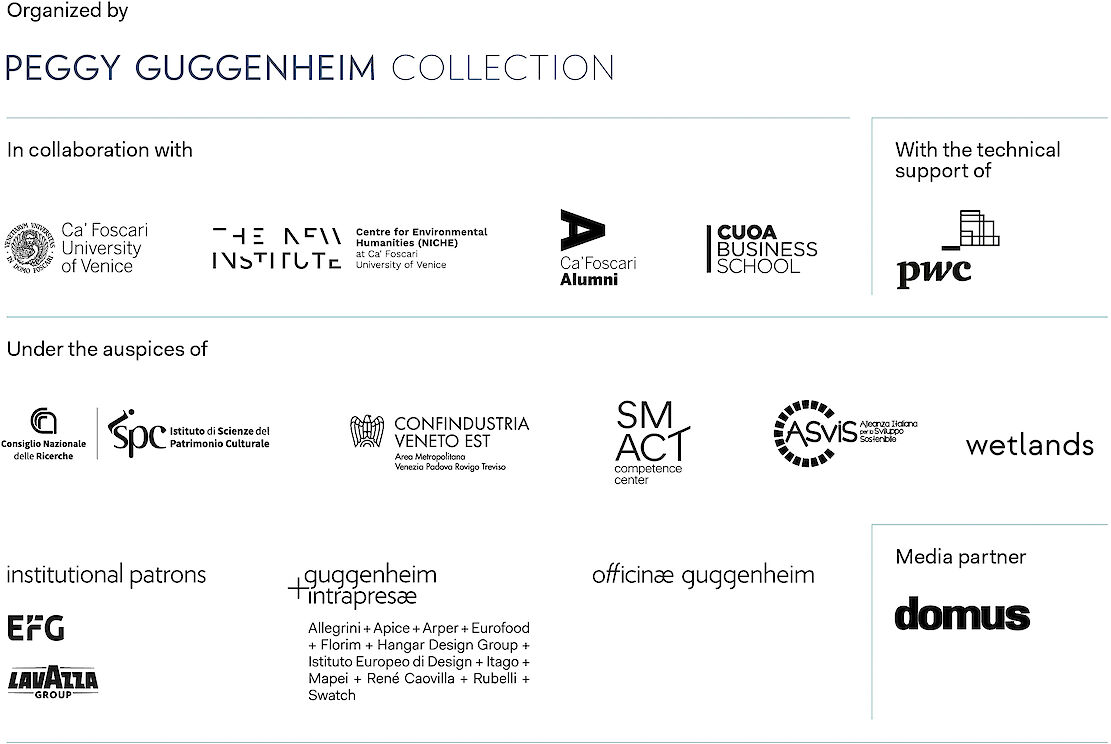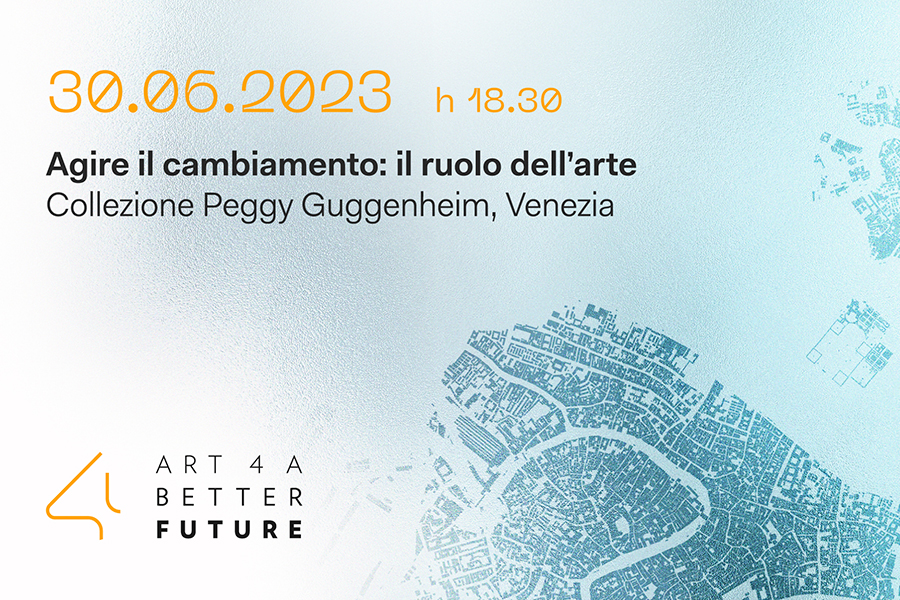Art 4 a Better Future
What is art’s role in promoting change and encouraging discussions on global issues? In what way can Art, Nature, and Technology help us rethink our relationship with the world around us?
The Peggy Guggenheim Collection ignites a conversation on topics related to Art and Sustainability as agents of change towards a sustainable future, by merging humanistic and scientific knowledge. Art, the natural world, human behavior, and mediating technologies are at the heart of an interactional system that manifests, to an increasing degree, the fragility of the planet’s ecosystems and the need for new critical and transdisciplinary practices. Art 4 a Better Future: Art, Sustainability, and Innovation takes place over three meetings and counts on the participation of experts from different fields—scholars, researchers, university professors, entrepreneurs—encouraging a critical analysis of the relationship between Art, Nature, Science, and Technology. The museum thus becomes a space for experimentation that promotes sustainability; a place for open dialogue on contemporary issues which fosters inclusivity, active participation, and promotes intersectoral debates regarding social and environmental challenges.
Enacting Change: The Role of Art
June 30, 2023
Peggy Guggenheim Collection

Taking Care: Towards an Ecology of Culture in Art, Science, and Technology
September 29, 2023
Università Ca’ Foscari – Niche, Venezia
Imagining Potential Futures: New Paradigms
November 17, 2023
CUOA Business School, Altavilla Vicentina
Scientific Supervisor

CRISTINA BALDACCI
Cristina Baldacci is Associate Professor of History of Contemporary Art at Ca’ Foscari University of Venice, where she is also affiliated with THE NEW INSTITUTE Centre for Environmental Humanities (NICHE). At NICHE she coordinates the Ecological Art Practices research cluster, which questions the relationship between art and the environment intertwining ecocritical approaches, radical imagination, and creative sustainability.
Baldacci’s research interests focus on the challenges of art history, art practices, and archives in the Anthropocene; the archive as a metaphor and art form; the strategies of appropriation, montage, and reenactment in contemporary art; the theory of images and visual culture—all topics on which she has published extensively. She has organized lectures, seminars, and conferences on the relationship between art, nature, and the environmental crisis.
Baldacci is a member of the Venetian faculty board of the National Doctoral Degree in Sustainable Development and Climate Change, of which Ca’ Foscari is one of the partner universities. In 2021 she co-organized the Anthropocene Campus Venice 2021, a one-week forum, with a strong educational commitment, hosted by Ca’ Foscari in partnership with the Haus der Kulturen der Welt in Berlin and the Max Planck Institute for the History of Science in Berlin. The forum provided the theoretical basis for two publications of which she is co-editor and author: the book Venice and the Anthropocene: An Ecocritical Guide (2022), and the forthcoming double issue of the “Holotipus” journal, titled Archiving the Anthropocene: New Taxonomies Between Art and Science (2023–2024).
niche
THE NEW INSTITUTE Center for Environmental Humanities (NICHE) is a research center at Ca’ Foscari University of Venice that aims to produce transdisciplinary scholarship and public engagement initiatives in which environmental humanities can play a major role. NICHE supports and develops creative and academic collaborations with a number of local and international partners, and contributes to a wide range of projects, small- and large-scale workshops, public programs, and exhibitions. From the unique vantage point of Venice, a city vulnerable to sea-level rise but also a living laboratory for a balanced ecosystem and a plural global community, NICHE fosters dialogue between leading scholars, scientific innovators, artists, writers, journalists, and public stakeholders for a new alliance between the humanities, social living, and natural sciences with a local and global impact.


